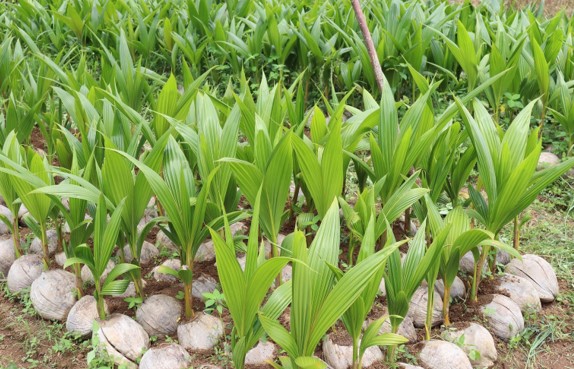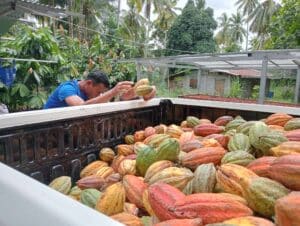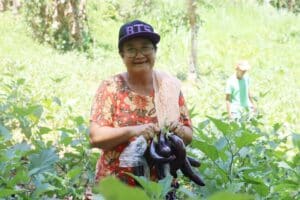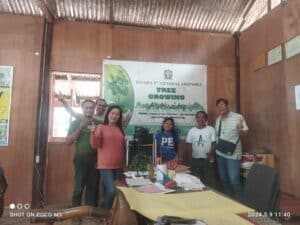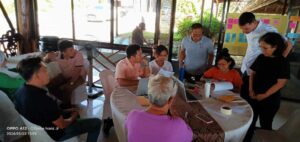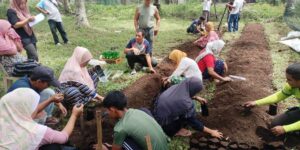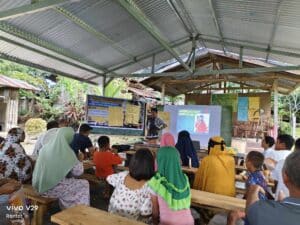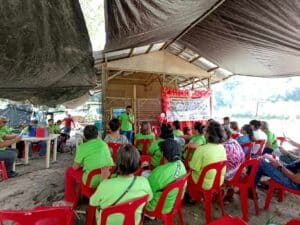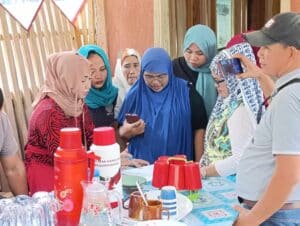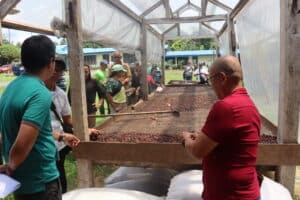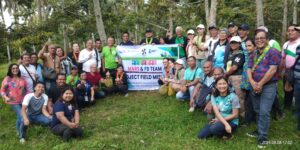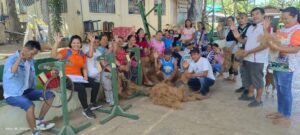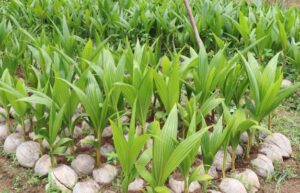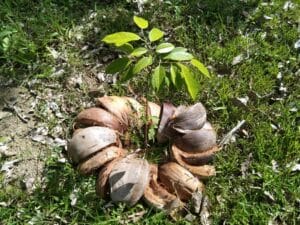 ojects: 2024 Update on Transformative Initiatives
ojects: 2024 Update on Transformative Initiatives
As we progress through 2024, the Integrated Rural Development Foundation (IRDF) continues to make significant strides in enhancing the lives of rural communities across Mindanao. With a mission to promote sustainable development, economic empowerment, and social inclusion, IRDF has been at the forefront of numerous impactful projects. This update highlights the latest developments in IRDF’s initiatives, focusing particularly on the Coconut Resiliency Project and other key interventions shaping a brighter future for Mindanao’s rural areas.
About IRDF: A Catalyst for Rural Advancement
Founded in 1989, the Integrated Rural Development Foundation (IRDF) is dedicated to improving the socio-economic conditions of underserved communities in the Philippines. IRDF’s approach is comprehensive, addressing various aspects of rural life through projects that span agriculture, education, health, infrastructure, and environmental sustainability. The foundation emphasizes a participatory and inclusive approach, working closely with local communities and stakeholders to ensure that development efforts are effective and resonate with the needs of the people.
Coconut Resiliency Project: A Cornerstone of Rural Development
One of the most notable initiatives under IRDF’s umbrella is the Coconut Resiliency Project, which addresses critical challenges faced by coconut farmers in Mindanao. The project aims to enhance the sustainability and profitability of coconut farming through a series of targeted interventions. Here’s an update on the key components of this transformative project:
- Coco 1: Consolidation of Conventional Coconuts
In collaboration with Livelihoods Funds for Family Farming, Franklin Baker, and Mars, the Coco 1 initiative has been pivotal in improving the efficiency of the coconut supply chain. As of 2024, the project supports 5,600 conventional coconut farmers across Davao Occidental, Davao Del Sur, North Cotabato, and Maguindanao. Efforts have focused on streamlining supply chains and expanding market access, leading to enhanced income stability for participating farmers. This initiative continues to strengthen market linkages and provide farmers with better opportunities for economic growth.
- Coco 2: Consolidation of Organic Coconuts
The Coco 2 project, in partnership with Livelihoods Funds for Family Farming, Franklin Baker, and Danone, promotes organic coconut farming practices. Currently, 800 farmers in Maguindanao and Lanao del Sur are involved in this initiative, benefiting from premium market opportunities for organic products. The project’s emphasis on sustainability and environmental stewardship is helping farmers access higher-value markets and adopt practices that contribute to long-term agricultural sustainability. The success of Coco 2 reflects a growing trend toward organic farming and its positive impact on both the environment and farmers’ livelihoods.
- Coco 3: Husk Valorization Project
The Husk Valorization Project, a collaboration with DANIDA and Bio Grow Substrates, aims to maximize the use of coconut husks by converting them into valuable products. A Farmer Demo Center has been established to process coconut husk chips, fiber, peat, and organic soil enhancers. These products are supplied to various stakeholders, including nurseries and farmers in Regions XI and XII and the Bangsamoro Autonomous Region in Muslim Mindanao (BARMM). This initiative not only provides additional income streams for farmers but also promotes the sustainable use of agricultural by-products, contributing to environmental sustainability.
- Coco 4: Copra Processing
In partnership with Transitions and Action for Sustainable Derivatives, the Copra Processing project focuses on improving the production and processing of copra. The project’s goals include enhancing product quality and market competitiveness, ultimately benefiting farmers through better returns on their copra. By addressing issues related to copra processing and market access, the initiative aims to increase the value captured from copra production and support the economic resilience of coconut farmers.
Additional IRDF Projects: Expanding Horizons
Beyond the Coconut Resiliency Project, IRDF has been actively involved in several other initiatives aimed at fostering holistic development in Mindanao. Here’s an overview of some of these key projects:
- Agricultural Innovation and Sustainability
IRDF continues to drive agricultural innovation through various programs designed to boost productivity and sustainability. The foundation’s efforts include training farmers in sustainable agricultural practices, such as Diversified and Integrated Farming Systems (DIFS) and climate-smart agriculture. To date, approximately 5,000 farmers have received training, leading to improved soil health, enhanced productivity, and greater resilience to climate change. These initiatives are integral to fostering long-term agricultural sustainability and ensuring food security in rural areas.
- Economic Empowerment through Microfinance
Economic empowerment remains a central focus of IRDF’s work. The foundation’s microfinance programs provide low-interest loans and business development support to small and medium-sized enterprises (SMEs). These programs are designed to stimulate economic activity, create job opportunities, and support local entrepreneurship. Success stories from the microfinance initiatives include expanded family-owned businesses and innovative startups that contribute to regional economic growth and community well-being.
- Infrastructure Development: Enhancing Connectivity
Infrastructure development is crucial for enabling economic activities and improving the quality of life in rural areas. IRDF has made significant progress in this area, with notable projects including the facilitation for the expansion and upgrading of road networks through the Rural Connectivity Project. These new roads have improved access to markets, healthcare, and educational facilities, reducing travel time by an average of 40%. Infrastructure improvements are essential for integrating rural areas into broader economic systems and enhancing overall community development.
- Education and Skills Development
Education is a key area of focus for IRDF, with several programs aimed at improving educational outcomes and providing skills training. The Youth Skills Development Program offers vocational training in fields such as information technology, agriculture, and handicrafts. This program is designed to enhance the employability of young people and equip them with practical skills for the job market. Additionally, the School Improvement Project supports rural schools with updated teaching materials, teacher training, and infrastructure upgrades, leading to better student performance and engagement.
- Environmental Conservation and Sustainability
IRDF is committed to environmental conservation through initiatives such as the Eco-Conservation Initiative, which focuses on reforestation, habitat protection, and sustainable land management. The foundation’s reforestation projects aim to restore degraded lands and enhance biodiversity, while community-based conservation efforts protect endangered species and natural habitats. These initiatives contribute to environmental sustainability and foster a greater appreciation for the natural environment among local residents.
Community Engagement and Governance: Strengthening Local Leadership
Effective community engagement and governance are vital for the success of IRDF’s projects. The Community Empowerment Program focuses on organizing and strengthening local leadership structures, promoting participatory planning and decision-making. This approach ensures that development projects align with community needs and aspirations, fostering trust and collaboration between IRDF and local residents. By empowering local leaders and organizations, IRDF enhances the effectiveness and sustainability of its interventions.
Conclusion: A Year of Progress and Promise
The updates from IRDF’s Mindanao projects highlight a year of dynamic progress and impactful change. Through the Coconut Resiliency Project and other key initiatives, IRDF is making significant strides in enhancing agricultural productivity, economic stability, and community development. The foundation’s commitment to sustainable practices, economic empowerment, and environmental conservation is shaping a brighter future for Mindanao’s rural communities.
As IRDF continues to build on these successes, the collaborative efforts of local communities, stakeholders, and the foundation promise to drive further progress and create lasting positive impacts. The road ahead is filled with opportunities for growth and development, and with ongoing dedication and innovation, Mindanao is well-positioned to achieve its development goals and improve the lives of its residents.
In summary, 2024 marks a landmark year for IRDF and its projects in Mindanao, reflecting a steadfast commitment to holistic development and a sustainable future for all.

